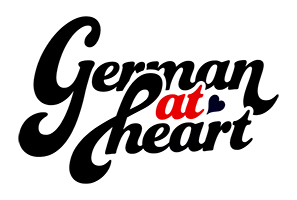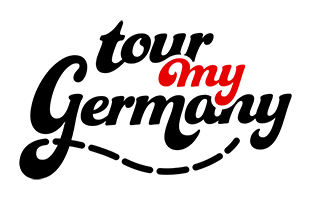- Home
- January in Germany
January in Germany: Weather, Events, and Essential Tips
By: Eran Fulson / Traveler, writer, and curious observer of all things German.
January in Germany is like stepping into a winter wonderland that promises a mix of charm, chill, and culture. While it may be the coldest month of the year, it’s also a great time to explore the country in its quieter, more affordable, and snow-dusted glory. Grab your thick winter coat, thermal underwear, and a waterproof jacket because I'm diving into everything you need to know about visiting Germany in January.
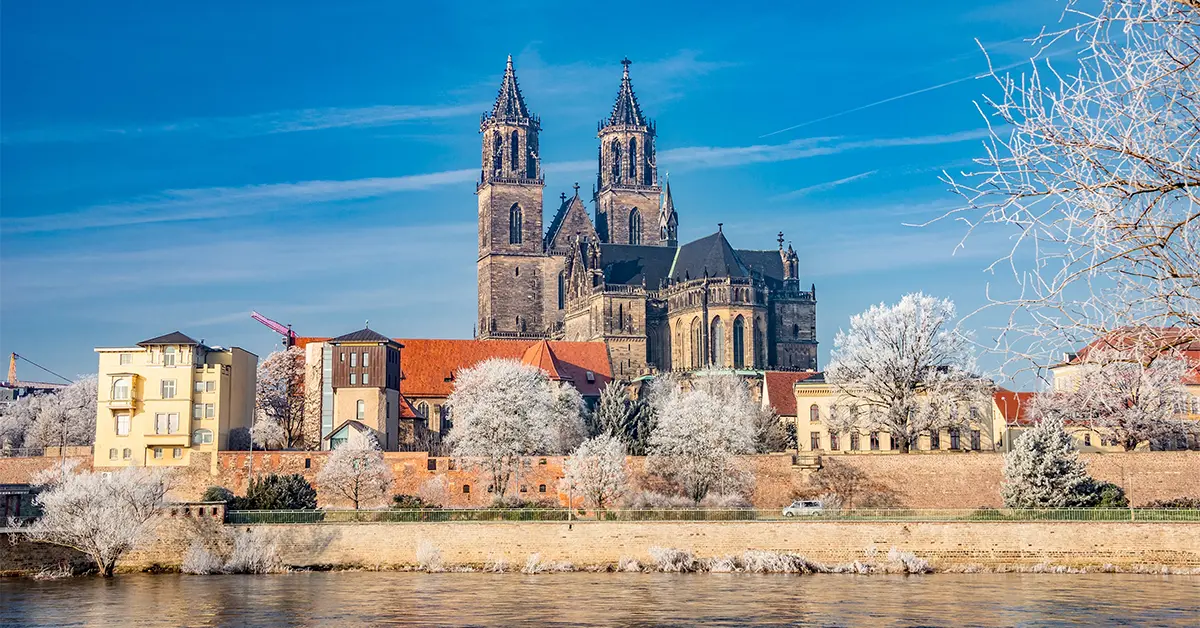 Frosty mornings in Magdeburg.
Frosty mornings in Magdeburg.On this page:
Germany in January: Weather Guide and What to Expect

Let’s be upfront—January in Germany is cold. Or at least, it feels cold. With average daily temperatures hovering between -1°C (30°F) and 3°C (37°F), and average maximum temperatures not straying far from there, you’ll need to bundle up.
Expect days of rain in some regions and even high humidity, making the chill feel extra sharp. Snow is more common in southern regions like the Bavarian Alps, which makes it an ideal time for winter sports enthusiasts.
Different parts of Germany have distinct weather patterns. The northern coastline tends to be milder but windier, while mountainous regions like the Alps are all about snow-covered landscapes. So whether you’re strolling through Berlin or skiing down alpine slopes, January’s weather conditions bring a mix of adventure and coziness.
What to Pack for Germany in January: Winter Travel Essentials

Don’t underestimate Germany’s winter chill. Your packing list should include warm clothes like a thick winter coat, layers of thermal underwear, and a sturdy waterproof jacket. Comfortable, waterproof boots are a must for navigating icy streets or slushy paths. Oh, and don’t forget a cozy scarf, gloves, and a hat—you’ll thank me later.
If you're anything like me, I'm sure you appreciate a good checklist. And not just for looking smug when your travel partner starts asking "Did you bring..." only to realize that of course you did. Everything—even the kitchen sink if it would fit in your carry-on.
Sure you can make your own list, or you can get a headstart with my free travel checklist by signing up for our newsletter here. Win-win.
Events in January
January 6th: Epiphany (Three Kings' Day)
After the New Year’s Eve fireworks fade and the quiet of New Year’s Day settles in, the next date to pop on your radar is Dreikönigstag (Three Kings’ Day) on January 6th.
This religious feast—known as Epiphany in English—officially wraps up the Christmas season. It’s your last chance to take down the Christmas tree guilt-free, and you’ll notice many of Germany’s Christmas markets closing their doors on this day too.
Three Kings’ Day gets its name from the Three Wise Men (or Three Kings) who rolled into Bethlehem bearing gifts of gold, frankincense, and myrrh for baby Jesus. These days, Protestant and Catholic communities across Germany mark the occasion with special church services, carol singing, and, of course, baking Königkuchen (king cakes)—because no German celebration is complete without a few post-Christmas calories.
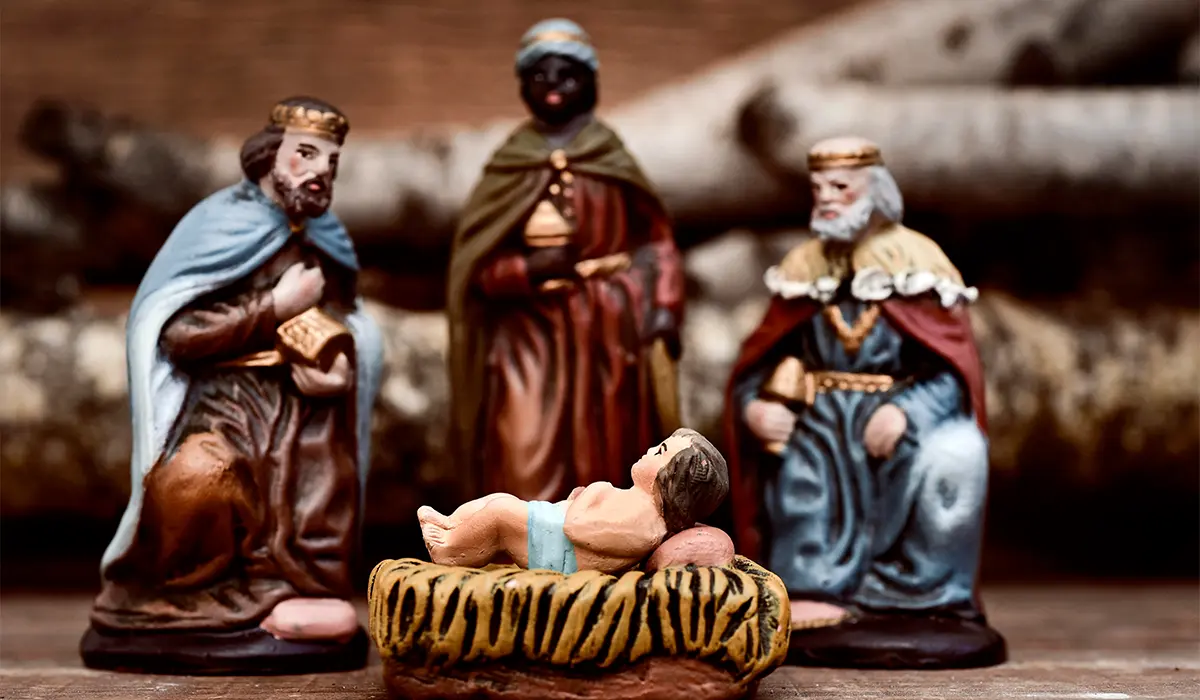
January 10th - February 2nd: Out of the Box Festival
From the cozy vibes of the Münchner Feuerzangenbowle (Nov 25th, 2024 - Jan 6th, 2025) to a dazzling light show at St. Markus’ church, Munich’s got plenty to brighten up those frosty January days.
But if you’re craving something a little more out-of-the-ordinary, don’t miss the Out of the Box Festival. This year’s theme, “The Renaissance of Time,” dives into the fascinating relationship between art and time with a lineup of avant-garde, boundary-pushing performances that are sure to get you thinking.
Expect an eclectic mix of music, theater, dance, and visual art that challenges the norm. And it’s not just limited to Munich’s Werksviertel—this year’s festival is hitting the road, bringing its unique flair to historic Bavarian spots like Ebersberg, Berchtesgaden, Regensburg, Passau, and more.
For the latest program details, be sure to check out the festival’s website—trust me, this is one event worth marking on your January calendar!
January 17th - March 22nd: Silent Film Festival
Berlin kicks off the year with a packed schedule of film festivals, from the world-renowned Berlinale in February to the British Short Film Festival at the tail end of January.
But one event that tends to fly a little under the radar is the nostalgic Stummfilm Konzerte (Silent Film Concerts), running from mid-January to the end of March.
Set in the atmospheric Twelve Apostles Church in Schöneberg, this unique event blends the charm of early cinema with the thrill of live music. Silent film enthusiasts are in for a treat, with a lineup that spans the genre—from the slapstick brilliance of The Cameraman to the spine-tingling horror of Nosferatu.
The real showstopper? Virtuoso composer Stephan v. Bothmer on the church organ, delivering a stunning live score alongside a rotating cast of equally talented musicians. If you’re a fan of classic films with a twist, this is one Berlin event you won’t want to miss.
See the video below for 2024's edition of the Silent Film Festival.
January 18th: Opening of European Capital of Culture 2025
Every year, the European Union selects a city to hold the prestigious title of Capital of Culture, and this time, the honor goes to the Saxon city of Chemnitz—along with 38 municipalities across the Ore Mountains, Central Saxony, and the Zwickau region.
Under the theme “C THE UNSEEN,” around 1,000 events are set to take place throughout Saxony this year, aiming to highlight the untold stories of an East German city and region shaped by transformation, resilience, and reinvention.
Things kick off on January 18th with an opening event at Chemnitz City Hall, where 60 of the 160 Capital of Culture projects will take the stage to give audiences a sneak peek of what’s to come. In the afternoon, the city center will come alive with open stages and a food festival celebrating the region’s rich culinary diversity.
If you’re looking for a fresh cultural adventure in 2025, Chemnitz might just be the place to be.
January 20th - 25th: Poetica World Literature Festival
Held in the lively city of Cologne, Poetica is a festival that celebrates the power of words, fresh ideas, and global perspectives. Each year, acclaimed poets, authors, and literary minds from around the world gather to share their craft through readings, panel discussions, and thought-provoking workshops.
Organized by the University of Cologne and backed by the North Rhine-Westphalian Ministry for Culture, the festival shines a spotlight on poetry as a sometimes-overlooked genre. All readings are delivered in their original language, with performances by German actors, and events are moderated in both English and German for a truly inclusive experience.
This year’s lineup is packed with highlights, including a literature workshop on the theme of “imaginary gardens” led by Jan Wegner, a fascinating discussion and readings at the Japanese Cultural Institute titled, “Why do we come to places where no one understands us?”, and an evening of poetic readings on landscapes, brought to life by the cast of Schauspiel Cologne on the festival’s final night.
If you’re a lover of poetry and storytelling, Poetica is definitely one for the calendar.

January 24th - February 2nd: CTM Festival
Who says music festivals are just for summer? The legendary CTM Festival in Berlin is here to prove otherwise. Now in its 26th year, this festival dedicated to experimental music and art continues to push the boundaries of sound, performance, and creativity.
This year’s edition takes over some of Berlin’s most iconic venues—think Berghain, silent green, radialsystem, and the Volksbühne at Rosa-Luxemburg-Platz—where artists will present their most cutting-edge work under the theme “Sustain.”
And it’s not just about the performances. The festival’s Discourse program of talks promises plenty of mind-expanding discussions, making CTM as thought-provoking as it is electrifying. If you’re up for redefining what music and art can be, this is the winter festival for you.
For a sample of what to expect, check out the trailer from 2023 below.
January 26th - February 2nd: Montgolfiade Hot-Air Balloon Festival
Set against the breathtaking winter scenery of Lake Tegernsee, the Montgolfiade Hot-Air Balloon Festival is easily one of the standout events on January's calendar. In the heart of Bavaria’s untouched natural beauty, dozens of colorful hot-air balloons take to the crisp, clear skies each day, creating a mesmerizing spectacle.
Visitors can do more than just admire the view—balloon rides offer jaw-dropping panoramas of the Alps, and there are photography sessions for those looking to capture the magic. Add in charming winter markets dotted along the lakeside, and you’ve got the perfect winter outing.
If you can only make it to one part of the festival, don’t miss the ‘Night Glow’ event, where glowing balloons light up the night sky in a truly unforgettable display. It’s the kind of experience that makes winter in Bavaria downright magical.
Is January a good time to visit Germany?
While some might shy away from traveling during the coldest month of the year, January offers plenty of perks:
- Lower Crowds and Prices: January is part of the year’s lowest rates period, making it an affordable time to visit Germany. The post-holiday dip means fewer tourists, shorter lines, and more breathing room at major attractions.
- Snowy Scenery: The mountainous regions and southern regions transform into snow-covered paradises, offering some of the best winter landscapes in Europe.
- A Unique Vibe: Germany in January is all about quiet charm. From frosty mornings in the capital city to cozy evenings in small towns, it’s a beautiful time to soak up a more authentic side of the country.
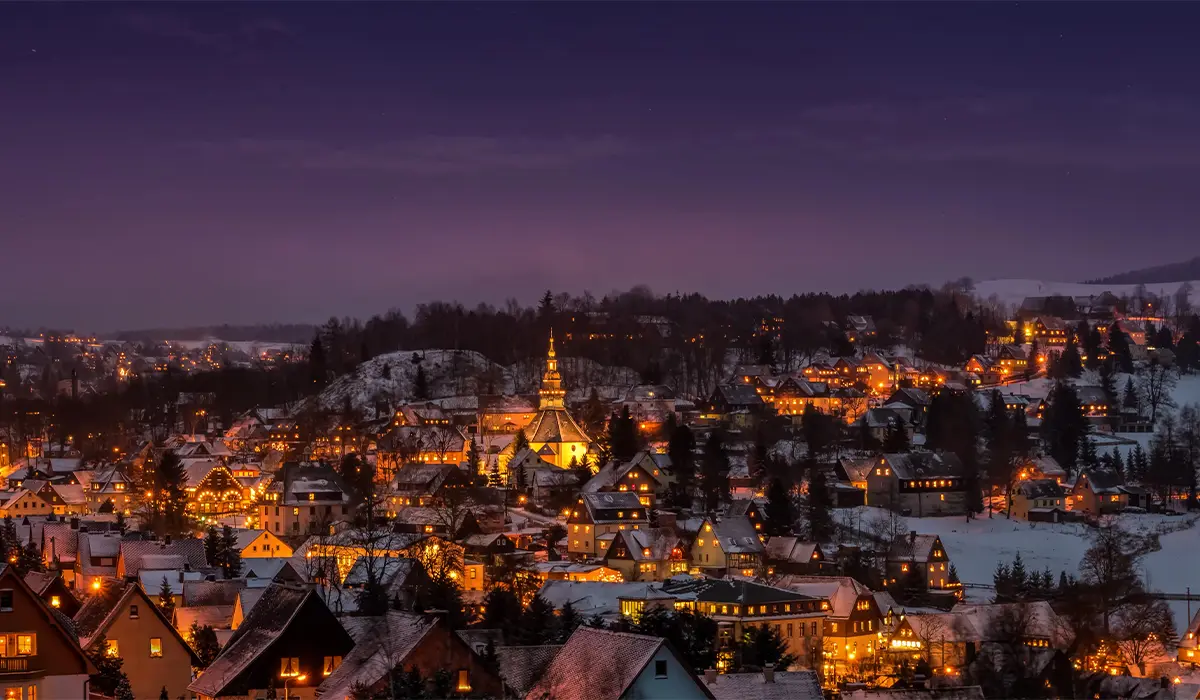 Winter in Seiffen.
Winter in Seiffen.5-Day January Itinerary: A Bavarian Winter
I'm going to stick with southern Germany for a 5-day itinerary. From my own personal experiences of mountains and winter—there's nowhere else I'd rather be.
Day 1: Arrival in Munich
- Morning: Arrive in Munich and check into your hotel (suggestion: stay near the Altstadt for easy access to major attractions). Grab breakfast at a local café like Café Frischhut (famous for its schmalznudeln—Bavarian donuts).
- Afternoon: Take a walking tour of Munich's Old Town (Altstadt):Visit Marienplatz to see the iconic Glockenspiel. Explore Frauenkirche, the city’s stunning cathedral. Walk through the historic Viktualienmarkt for a light lunch or snacks. Visit the Residenz, the former royal palace of Bavarian monarchs.
- Evening: Enjoy traditional Bavarian cuisine at Hofbräuhaus München (don’t miss the pretzels and a Maß of beer!). Stroll through the illuminated streets of Munich’s Old Town before heading back to your hotel.
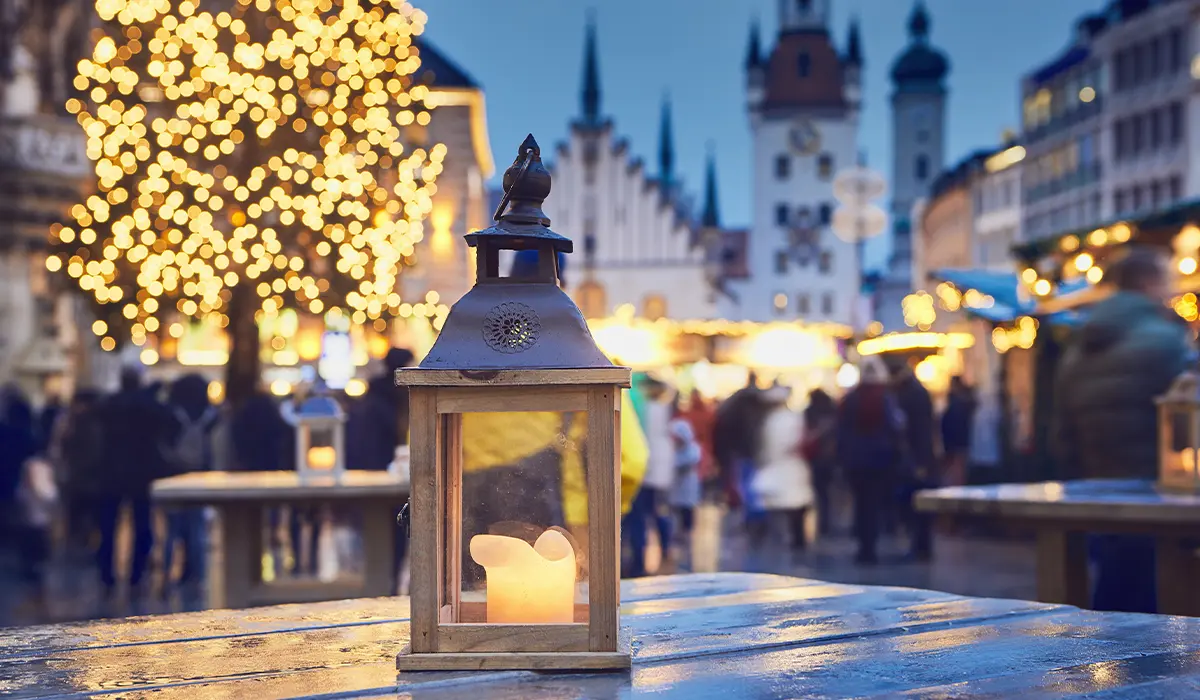 Enjoy the evening in the Marienplatz.
Enjoy the evening in the Marienplatz.Day 2: Neuschwanstein Castle & Hohenschwangau
- Morning: Take an early train or drive (~2 hours) to Hohenschwangau, home of the famous fairytale castles. Visit Neuschwanstein Castle, perched dramatically on a hill (book tickets in advance for a guided tour). If time allows, explore Hohenschwangau Castle, King Ludwig II's childhood residence.
- Afternoon: Have lunch in the village of Hohenschwangau (try Alpenstuben for hearty Bavarian dishes). Take a winter walk around Alpsee Lake for stunning views of the Bavarian Alps.
- Evening: Return to Munich for dinner at a cozy restaurant like Augustiner Klosterwirt. Overnight in Munich.
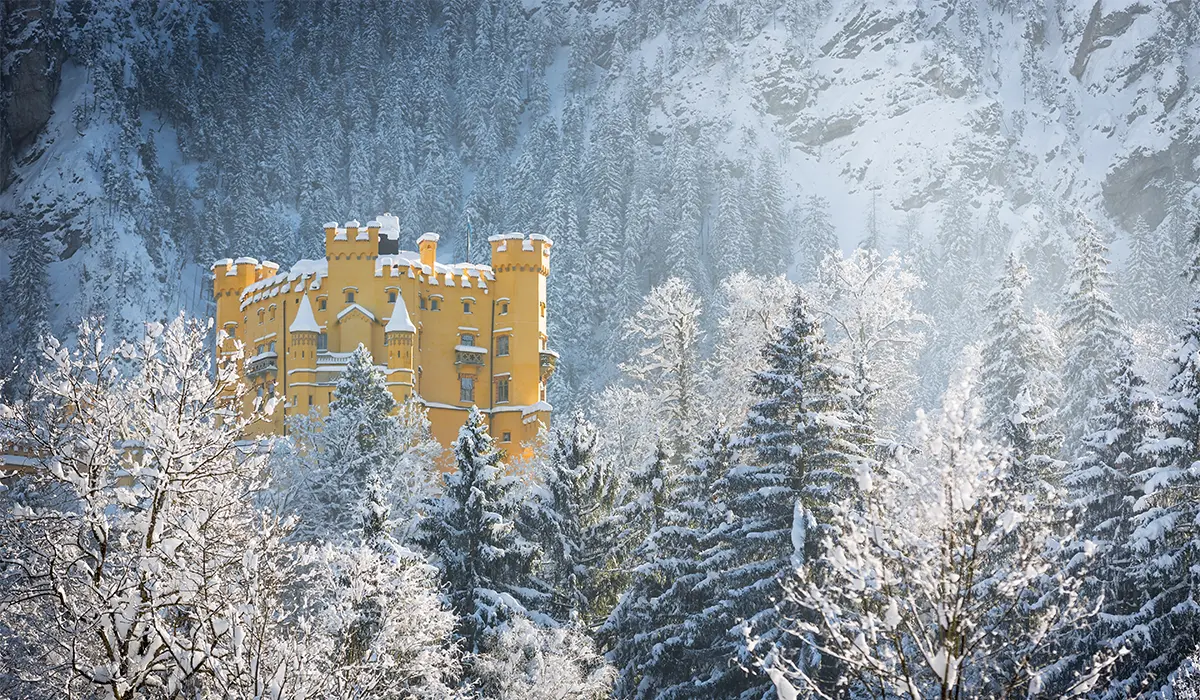 The snowy Hohenschwangau Castle.
The snowy Hohenschwangau Castle.Day 3: Zugspitze & Garmisch-Partenkirchen
- Morning: Depart early for Garmisch-Partenkirchen (~1.5-hour drive or train). Take the cogwheel train or cable car up to Zugspitze, Germany’s highest peak. Enjoy panoramic views of the snow-covered Alps.
- Afternoon: Have lunch at the summit restaurant (Panorama 2962) or at the base station.Spend time exploring Garmisch-Partenkirchen: Stroll through the historic town center, famous for its painted houses (Lüftlmalerei). Visit the Partnach Gorge (Partnachklamm) if the winter conditions allow—it’s a magical frozen wonderland!
- Evening: Stay overnight in Garmisch-Partenkirchen and enjoy a traditional Alpine dinner at Gasthof Fraundorfer.
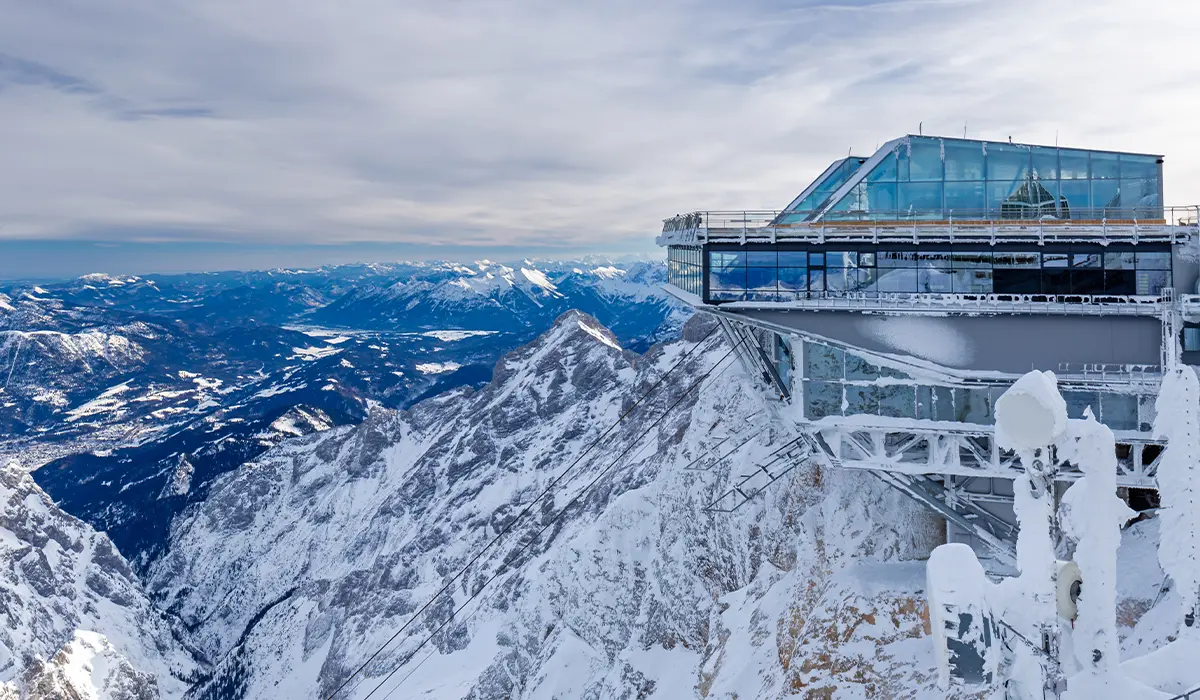 It's as cold as it looks.
It's as cold as it looks.Day 4: Rothenburg ob der Tauber
- Morning: Drive or take the train (~3 hours) to Rothenburg ob der Tauber, a perfectly preserved medieval town. Check into a charming guesthouse like Hotel Herrnschloesschen.
- Afternoon: Wander the cobblestone streets and explore Rothenburg's highlights: Climb the Rathaus Tower for views over the town. Visit St. Jakob's Church to see the famous wooden altar. Walk along the medieval town walls for picturesque winter scenes. Stop by Käthe Wohlfahrt Christmas Village, a year-round Christmas store.
- Evening: Enjoy a traditional Franconian dinner at Zur Höll, one of the oldest wine taverns in town.
- Optional: Join the Night Watchman’s Tour, a humorous and informative evening tour of Rothenburg history.
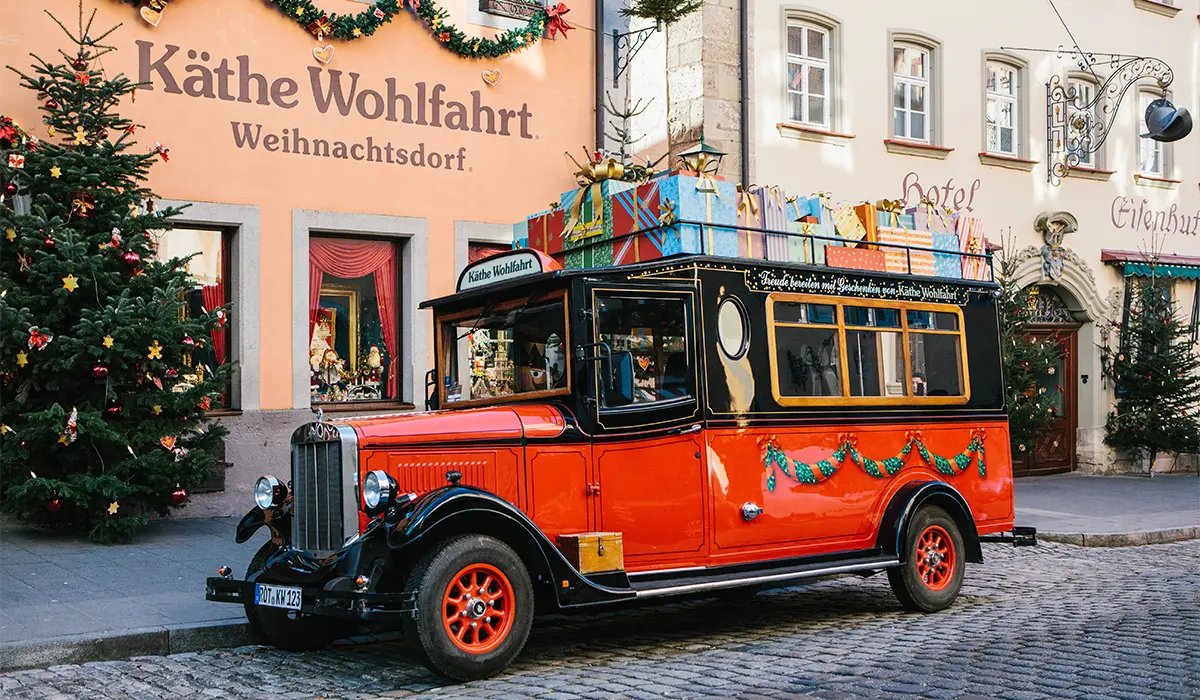 Where it's Christmas every day of the year.
Where it's Christmas every day of the year.Day 5: Return to Munich
- Morning: Enjoy a leisurely breakfast and soak in more of Rothenburg’s charm with a visit to the Medieval Crime Museum or a quick stop at the Plönlein (iconic postcard spot). Depart for Munich (~3-hour drive or train).
- Afternoon: If time allows, explore more of Munich: Visit the Deutsches Museum (focusing on science and technology). Stroll through the English Garden for winter serenity. Shop for last-minute souvenirs at Maximilianstrasse or Schwabing.
- Evening: Have a farewell dinner, savoring one last Bavarian meal. Head to the airport or stay overnight in Munich for your departure the next day.
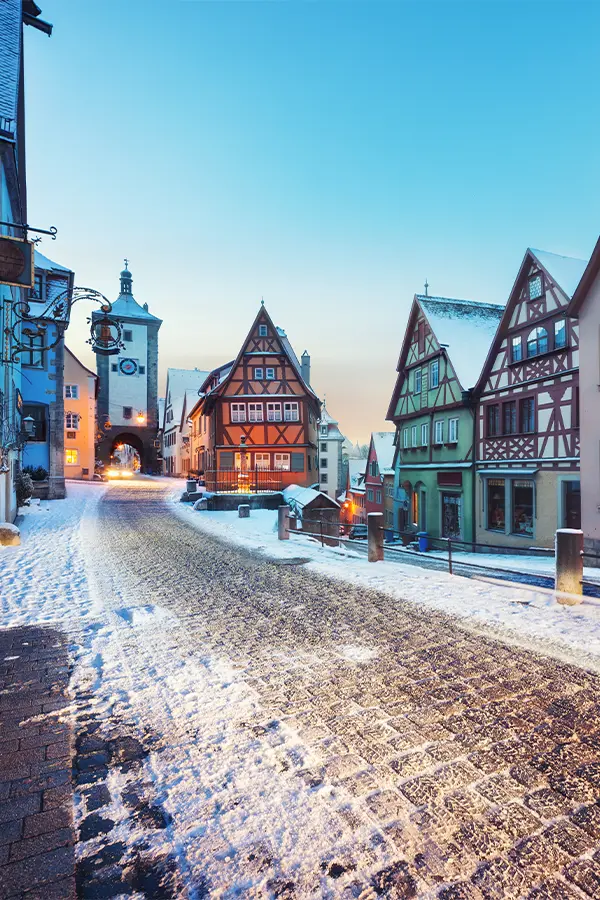 Nothing beats a snowy Plönlein.
Nothing beats a snowy Plönlein.Practical Tips for Visiting Germany in January
- Check the Weather Forecast: Germany’s weather can be unpredictable, so stay updated on weather forecasts.
- Layer Up: It’s not just about wearing warm clothes—layering is key to staying comfortable.
- Plan for Shorter Days: With the sun setting early, plan your outdoor activities accordingly.
- Pack for the Cold: Don’t skimp on essentials like thermal underwear and waterproof gear.
Top Destinations for January in Germany
If you’re planning your itinerary, here are some great destinations to consider:
- Black Forest: Perfect for hiking, snowshoeing, and indulging in Black Forest cake.
- Bavarian Alps: Home to the highest peak in Germany, don't miss the unbeatable skiing and snowboarding.
- Northern Coastline: Rugged, windy, and beautiful—ideal for a different kind of winter escape.
- German Cities: Explore the charm of cities like Munich, Berlin, and Heidelberg, where medieval architecture meets modern vibes.
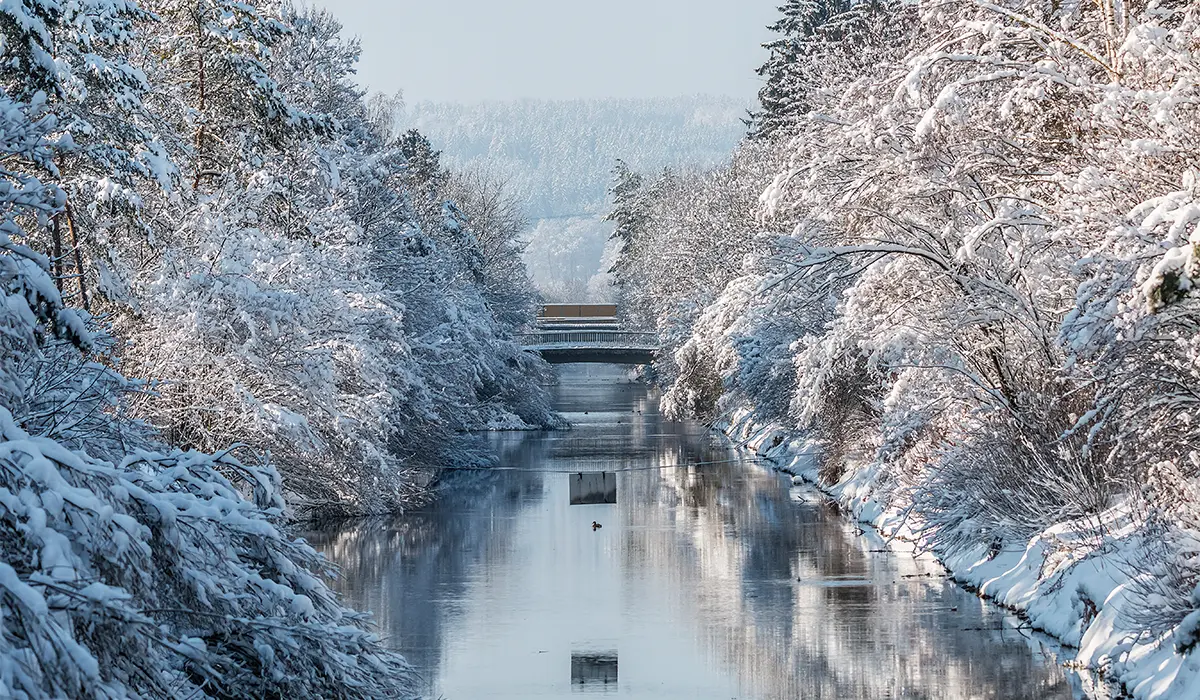 The only thing better than Munich in the summer? Munich in the winter.
The only thing better than Munich in the summer? Munich in the winter.Key Takeaways & Conclusion
The key takeaways for a wintery visit to Germany in January:
- Cold Weather & Packing Tips: January in Germany is cold with snow in southern regions. Pack a thick coat, thermal layers, and waterproof boots.
- Events & Festivities: Enjoy lingering Christmas markets, New Year's celebrations, and cultural events like Kings Day and live music performances.
- Top Activities: Explore landmarks like Neuschwanstein Castle and the Berlin Wall, enjoy winter sports in the Bavarian Alps, and indulge in hearty German cuisine.
- Travel Perks: January offers lower crowds, affordable prices, and snowy scenery, making it a peaceful and picturesque time to visit.
- Must-Visit Destinations: The Black Forest, Bavarian Alps, northern coastline, and cities like Berlin and Munich showcase Germany's winter charm.
January in Germany might be cold, but it’s also filled with warmth—from the glow of post-holiday markets to the cozy comfort of hearty German cuisine. Whether you’re braving the slopes in the Bavarian Alps, exploring the Berlin Wall, or simply enjoying the quiet beauty of snow-covered towns, January is a beautiful time to experience Germany’s charm.
So pack your thick winter coat, grab a steaming mug of glühwein, and make the most of your winter adventure. Who knows? You might just find that January in Germany is the perfect time for your next trip.
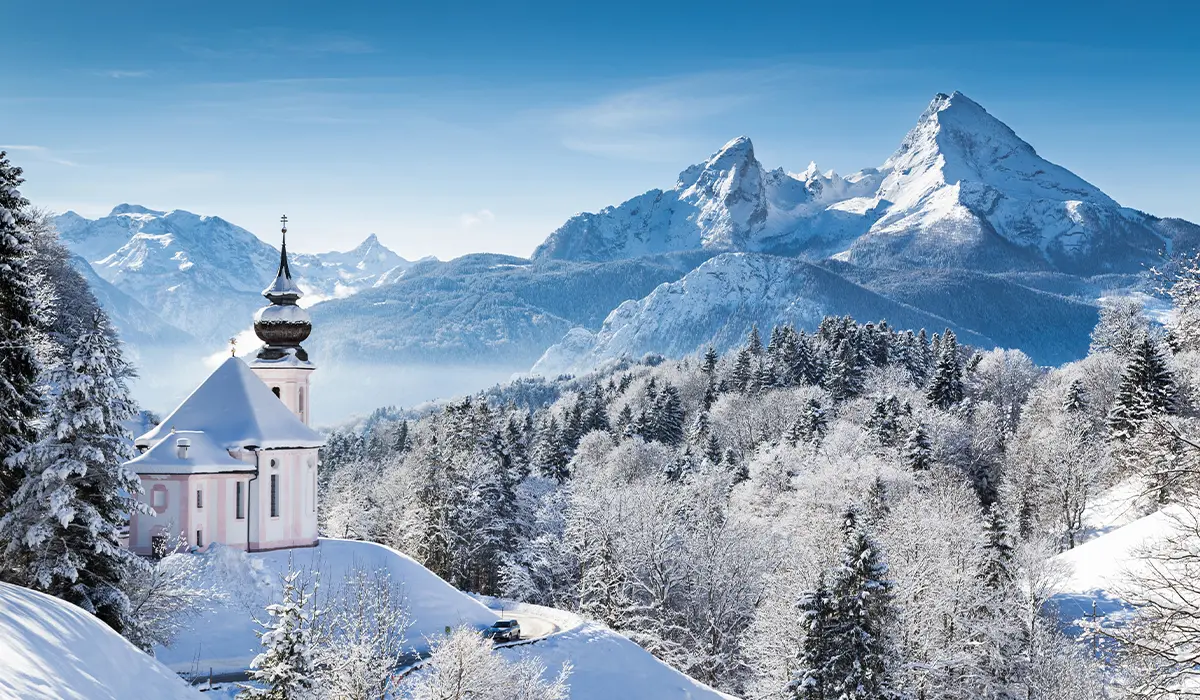 Where else is better?
Where else is better?January in Germany FAQ
Is January a good time to visit Germany?
Is January a good time to visit Germany?
Yes, January is a great time for budget travelers and winter sports enthusiasts. You’ll enjoy lower crowds, snow-covered landscapes, and post-Christmas markets.
What are the best winter activities in Germany?
What are the best winter activities in Germany?
Top winter activities include skiing in the Bavarian Alps, exploring snow-dusted castles, visiting museums, and savoring hearty German cuisine.
How cold is Germany in January?
How cold is Germany in January?
Temperatures in Germany range from -1°C (30°F) to 3°C (37°F). Pack warm clothes, including thermal layers, a winter coat, and waterproof boots.



